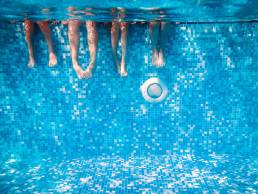Can pool facilities operate more efficiently and reduce costs, to stop the closure of our beloved facilities? The answer lies in reusing and recycling water says James Hadley, Manager of Marketing and Sales.
Water is precious. It’s what makes Earth so unique, and all life relies on it. But it is often used without second thought and taken for granted. With the water industry facing increasingly complex challenges – this must change.
The huge population growth that has taken place over the last century has seen the demand for water rise year on year, putting existing water resources under ever increasing pressure. Climate change also adds numerous problems. Changes in intensity and patterns of precipitation, lead to more frequent droughts, but also flooding which can damage critical water infrastructure.
To face these challenges, it is essential to implement water sustainability across all industries, by promoting efficient water usage. So, what does this mean for swimming pools facilities – can they play their part?
It’s not just about saving water
Swimming pool facilities use large amounts of water, and to make things worse, they are energy hungry. These two factors combined, makes them expensive to run. Hence why, over the last decade or so, the UK has lost almost 400 swimming pool facilities and the associated social value of health, wellbeing and community benefits. This makes saving water not only an environmental priority, but also a financial priority for pool facilities.
The cost of the pool water alone is significant. It was most likely supplied by your local water company and cost in the region of £2.00 per cubic metre. It has then been treated and chemicals added, bringing its cost up to about £2.50/m3. So, next time you take a dip at your local 25m pool, think you’re swimming in around £2,000 worth of water.
And that’s just the beginning. The water must be continuously filtered and treated, with a significant amount being lost during backwashing of the filter – as much as 25% of the total annual water consumption.

The cost of backwashing
When backwashing the filter, the £2.50/m3 water is used to flush out suspended solids, and almost always just goes down the drain to be discharged into the sewer. This is both an area of significant water wastage, but also adds around another £1.00/m3, bringing the total cost of the discharged backwash water to about £3.50/m3.
For a sand filter, of around 1.2m diameter, about 4-7m3 of water is required per backwash. And with most facilities carrying this task out daily, backwashing alone can use thousands of litres of water and could be costing anywhere from £5,000 to £9,000 per year (for a typical 25m pool). So, how can we cut water wastage and reduce this cost?
It’s time to ditch the sand filter
One option is to replace conventional sand filters with more efficient alternatives. For example, the Defender Regenerative Filter uses half the amount of water for backwashing compared to a conventional sand filter. This could save around 1,000m3 of water and between £2,500 to £4,500 each year.
Another option is the Ceramiflo Membrane Filter, which is even more water efficient, using only a third of the backwash volume compared to a conventional sand filter. Saving around 1,700m3 of water and between £3,500 to £6,000 per year. Both filters have a significantly smaller footprint than a sand filter, giving more space in the plant room.
Recycling & reuse of pool filter backwash
Another strategy is to recycle and reuse the pool filter backwash. When you look at what’s in the backwash water, it pretty much pool water, only it contains all the suspended solids removed by the filter. It’s at pool pH, temperature, and chlorine levels, which saves water consumption, chemicals usage, heating energy, and money – a win, win and win.
A new bespoke backwash recovery system can be designed and installed for your pool and can recover around 80-90% of the backwash water, which could save around 2,300m3 of water and up to £8,000 every year.
Need more information on bespoke backwash recovery systems? Contact James on 01246 857000 or email: jamesh@sterling-hydrotech.co.uk

